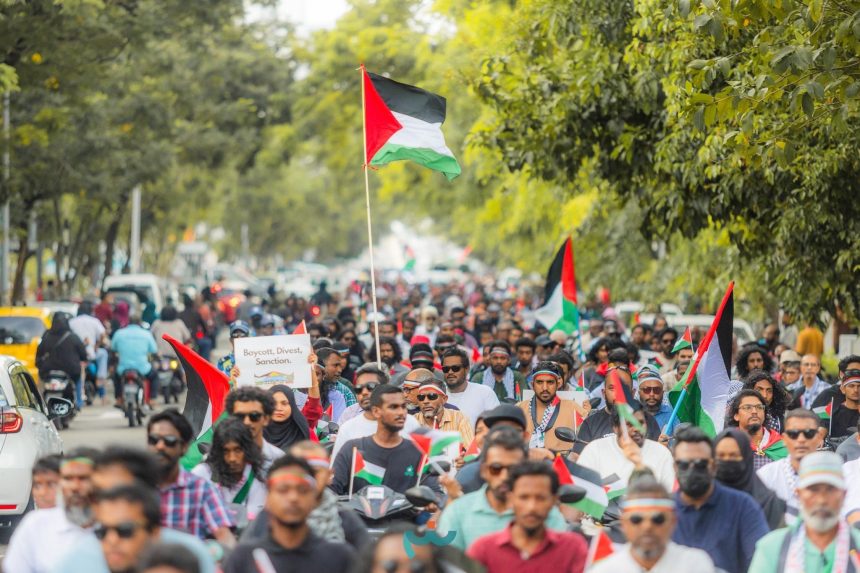The Maldives’ recent decision to bar Israeli passport holders from entering the island nation is being framed domestically as a response to overwhelming public sentiment rather than an aggressive policy shift by the government. Officials in Malé emphasize that the move – which was swiftly approved by parliament and ratified by President Mohamed Muizzu this week – aligns with the democratic will of the people and the country’s decades-old stance in solidarity with Palestine. The ban took immediate effect after ratification on Tuesday, underscoring the urgency demanded by Maldivian public opinion amid the ongoing conflict in Gaza.
Ban Ratified Amid Overwhelming Public Sentiment
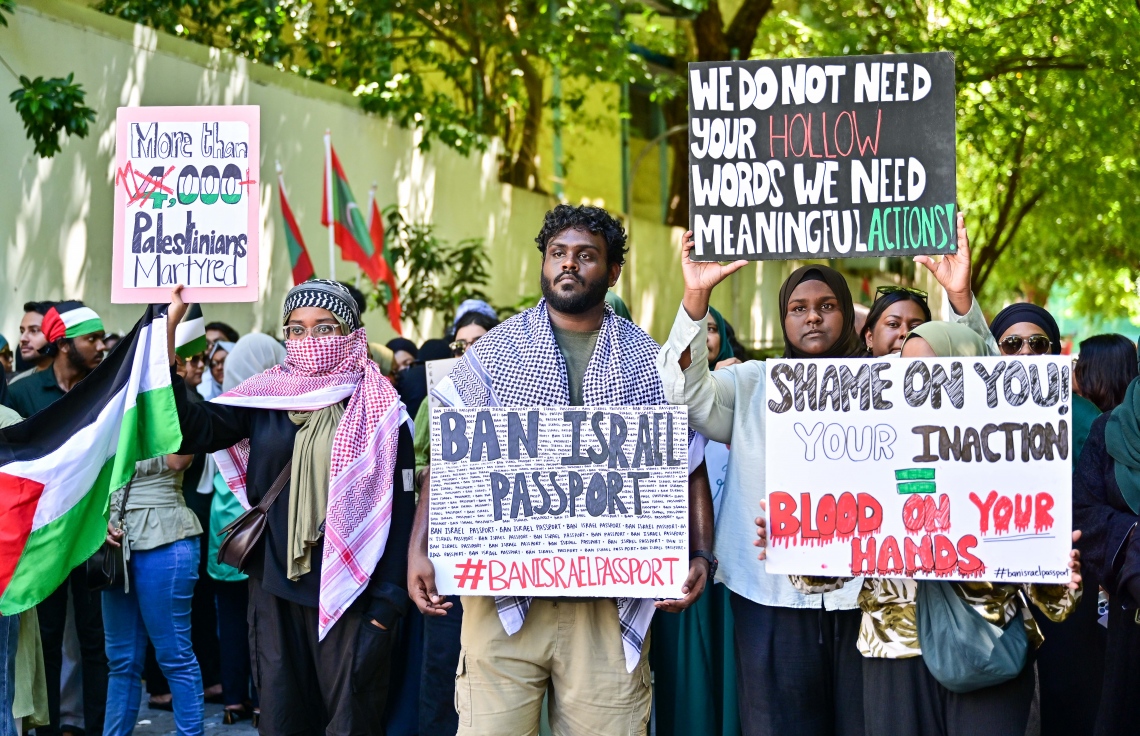
The entry ban on Israeli citizens was driven by nationwide calls for action as war raged in Gaza. Political parties across the spectrum – including opposition groups and government allies – had been urging the administration to take a hard line in protest of Israel’s military campaign. This rare consensus saw leaders from all sides echoing public demonstrations that demanded cutting ties. For instance, protesters in 2023 staged rallies urging authorities to stop Israeli tourism altogether, in a vivid show of solidarity with Palestinians. Lawmakers responded to the public mood: a resolution to bar Israeli passport holders was submitted in parliament that year, capturing popular sentiment in a formal proposal. By June 2024, the President’s Office announced plans to ban Israeli travelers as public anger over the war in Gaza mounted.
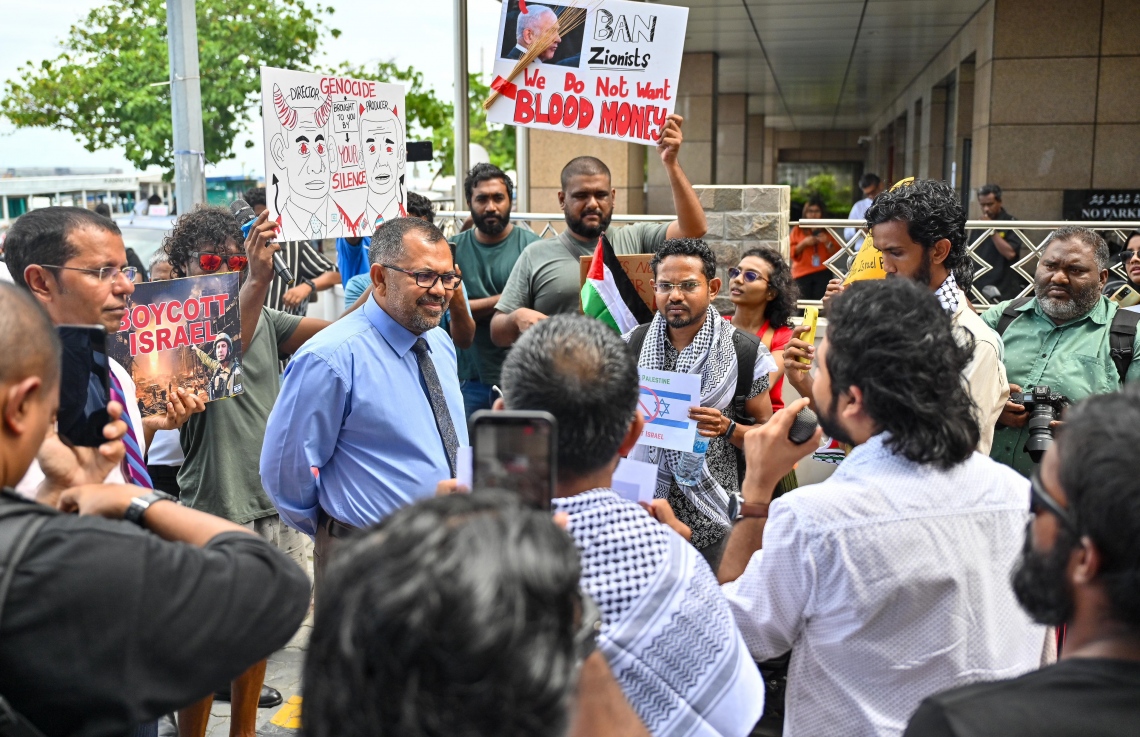
When President Muizzu’s government finally enacted the ban this week, it presented the step as a symbolic stand with Palestine rather than an act of hostility. The President’s Office noted that the measure demonstrates the country’s “firm stance” against the ongoing violence in Gaza and “reaffirms its unwavering solidarity” with the Palestinian people. In parliament, there was little opposition to the amendment; the swift approval reflected the reality that Maldivian public opinion had long been ahead of the policymakers on this issue. Officials stress that the decision is an outcome of democratic pressure – a reflection of the Maldivian people’s conscience – and not a unilateral provocation. Notably, Israeli visitors make up only a tiny fraction of the Maldives’ tourist arrivals (around 0.6% in recent years), suggesting the ban is a principally political statement driven by moral solidarity rather than economic calculus.
A Foreign Policy Grounded in Pro-Palestine Tradition
The Maldives has a long history of supporting the Palestinian cause, and the latest travel ban is consistent with that legacy. Shortly after gaining independence in 1965, the Maldives initially maintained diplomatic relations with Israel, but it severed formal ties in 1974 amid solidarity with Arab and Muslim nations following regional conflicts. In the decades since, successive Maldivian governments have typically kept Israel at arm’s length, reflecting the sentiments of the overwhelmingly Muslim population. Even when limited cooperation agreements were signed in 2009 (in areas like tourism, health, and education), full diplomatic relations were never restored. Those tentative engagements were met with wariness at home.
Maldives’ support for Palestine has been unequivocal on the world stage. The nation consistently backs Palestinian statehood and rights in international forums. During the 2014 Gaza war, for example, the Maldives government at the time took the remarkable step of announcing a boycott of Israeli products as a form of protest. The Foreign Ministry then declared Maldives would fully support the Palestinians in venues like the UN Human Rights Council, even pledging humanitarian aid. Maldives has repeatedly voted in favor of Palestinian resolutions at the United Nations and voiced condemnation of Israeli military actions. As recently as late 2023 and early 2024, Maldivian diplomats joined calls for accountability over the conflict in Gaza and urged compliance with international law in the occupied territories. The principle of Palestinian solidarity is thus deeply ingrained in Maldivian foreign policy. This enduring stance helps explain why measures like the travel ban are viewed domestically not as radical departures, but as reaffirmations of the country’s core values on the international stage.
Past Attempts at Israel Ties Met with Backlash
History shows that Maldivian governments risk severe political fallout if they are seen as warming up to Israel against public sentiment. A pivotal example occurred in 2011, when then-President Mohamed Nasheed’s administration attempted to normalize relations with Israel. Nasheed’s government – which had signed new cooperation deals with Israel and even sent the Maldives’ first official delegation to Tel Aviv – encountered ferocious resistance at home. Conservative and opposition groups seized on the engagement with Israel as proof of “anti-Islamic” policies. Long-simmering discontent coalesced into a broad coalition of opposition parties and religious activists, which staged a massive rally in Malé on December 23, 2011. Thousands of demonstrators gathered that day in what was billed as a “Defend Islam” protest, demanding the government halt various initiatives deemed un-Islamic – chief among them a new plan to allow direct flights between Maldives and Israel.
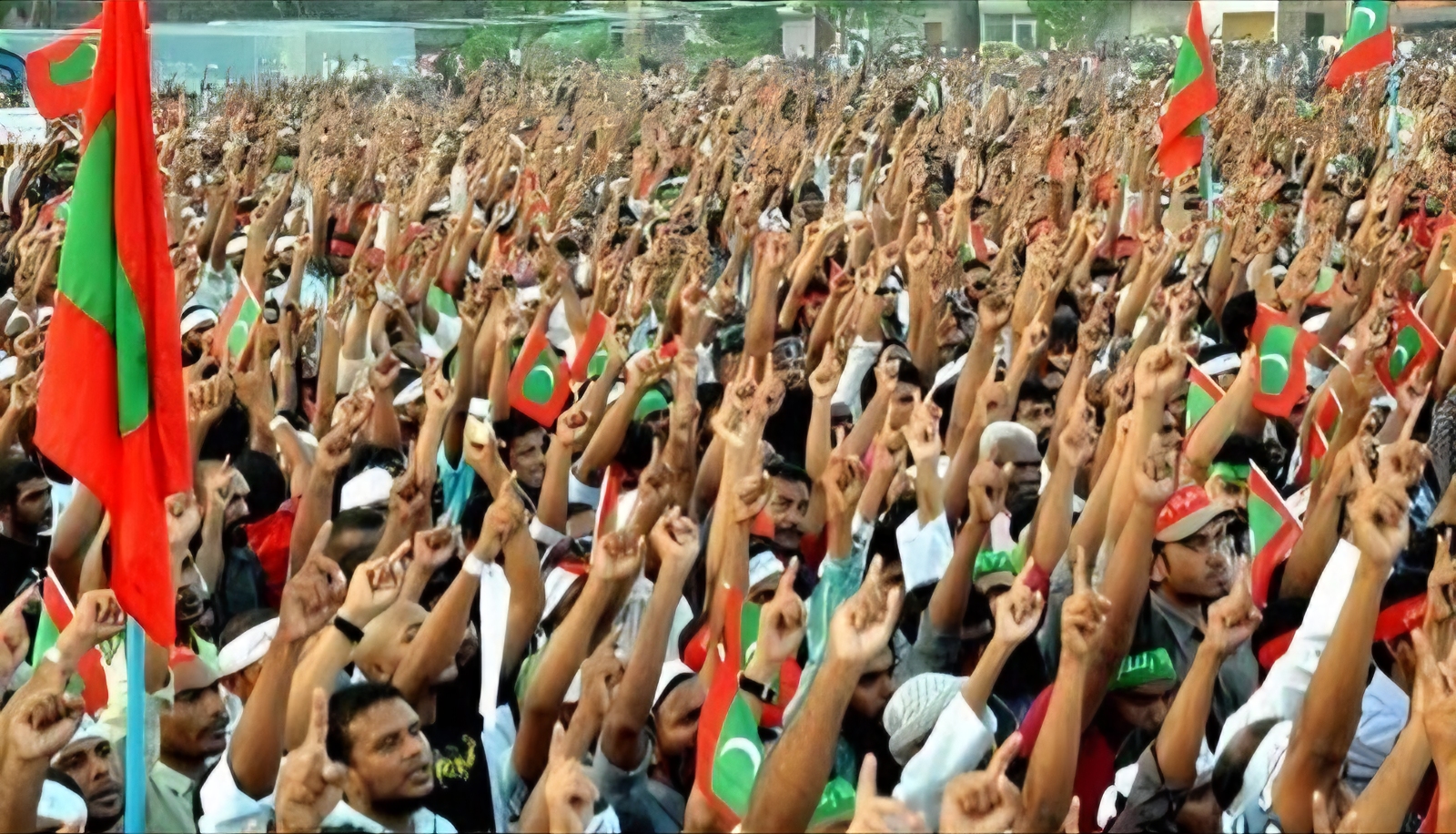
The pressure from the December 2011 protests and subsequent unrest proved pivotal. Nasheed’s opponents, previously fragmented, had united under the so-called December 23 coalition, capitalizing on public fears that Islamic identity was under threat. The climate of street protests and political agitation continued into the new year. By February 7, 2012, President Nasheed resigned under duress amid a police mutiny and opposition-led rallies. Many observers noted that the groundswell of anger against his Israel outreach was among the factors that eroded his support and led to the downfall of his Maldivian Democratic Party (MDP) government. The 2011 episode stands as a cautionary tale in the Maldives: any perceived overture toward Israel can ignite public fury and topple political fortunes. It cemented the understanding among Maldivian leaders that policy towards Israel must hew closely to popular sentiment, which has consistently been sympathetic to Palestine.
Democratic Pressure, Not Hostility
Mindful of this history, the current government has been careful to characterize the ban on Israeli passport holders as a people-driven decision rooted in the Maldives’ democratic values and human rights concerns. By highlighting that parliament acted in line with the “overwhelming public support” for the measure, Maldivian officials aim to preempt foreign criticism that the policy is born of blind hostility. Instead, they argue, it is a principled stance: a small democracy voicing moral opposition to what its citizens widely see as injustices in Palestine. The continuous domestic advocacy on this issue – from street demonstrations and civil society campaigns to cross-party parliamentary initiatives – underscores that the policy did not emerge in a vacuum or from a single administration’s agenda. It has been building through grass-roots pressure for years.
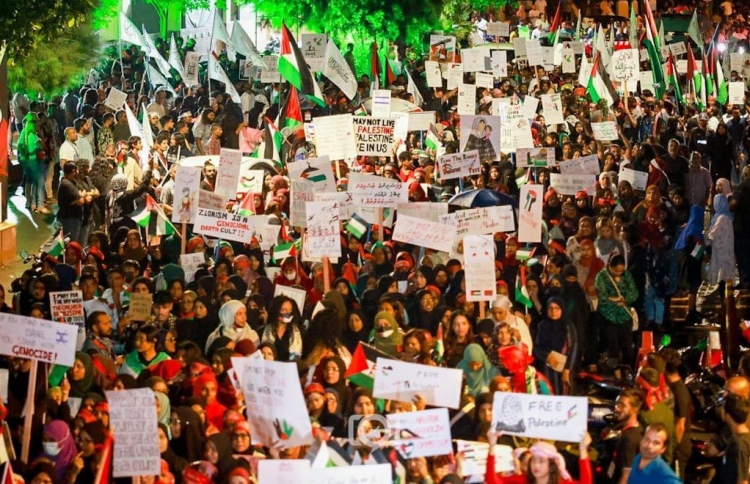
While international observers may debate the wisdom of singling out Israelis for a travel ban, the government in Malé is at pains to point out that the decision is an extension of the Maldives’ long-held foreign policy ethos. By taking this step, President Muizzu’s administration is essentially following through on the mandate given by its people, much as previous governments have voiced support for Palestine in line with popular consensus. Officials note that the Maldives continues to engage cordially with countless other nations and that this policy is isolated to the specific context of the Israel-Palestine conflict, which holds unique significance for its populace. They stress that the move should be viewed not as a belligerent gesture, but as a symbolic alignment with the Palestinian struggle, consistent with the country’s values and the collective will of its citizens.
In sum, the ban on Israeli passport holders serves to reinforce the Maldives’ image – domestically and abroad – as a nation that stands firmly with Palestine due to deep public conviction. It is a decision born out of democratic pressure and historical experience, aimed at voicing solidarity rather than instigating hostility. As such, Maldivian authorities hope that international partners will understand the popular democratic impetus behind the policy. The stance is a reminder that in the Maldives, foreign policy often mirrors the strong sentiments of its people – and for generations, those sentiments have been unwaveringly in support of Palestine.


